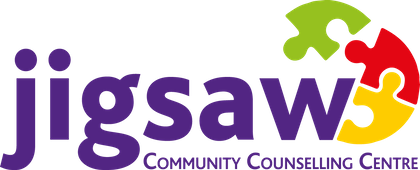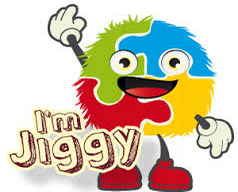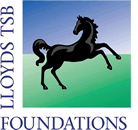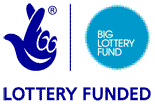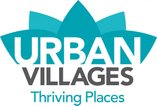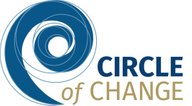SCHOOL COUNSELLING
MEET JIGGY
Jiggy is Jigsaw Counselling's mascot and the face of Jigsaw's counselling with children. He's a friendly, furry, colourful, fellow who likes to help people, especially children.
He helps create a fun relaxing atmosphere where children can engage in counselling. Jiggy can be coloured in, cuddled, or even thrown at the wall!
Children sometimes feel that the counselling environment is too intense or intimidating. Jiggy is there to reassure kids that counselling in Jigsaw is especially for kids.
PRIMARY SCHOOL COUNSELLING SERVICE
We offer a counselling service for pupils as part of our arrangements for helping children with personal problems. This page is for their parents or carers and explains what counselling is about.
What does a counsellor do?
Counsellors are trained to listen to people, without judging them in any way, and help them sort out their thoughts and feelings about whatever is concerning them.
Who are the school counsellors?
They are fully qualified and experienced children's counsellors with a wide experience of working with children.
Why have a counsellor in school?
Often, when we are stressed, worried, or just plain unhappy, we cannot work out why we feel so low. This is especially so for children. Our experience is that a little counselling help for an unhappy child early in their school career can have an immensely beneficial impact on their life chances.
The signs that a child may need counselling include bed wetting, withdrawal, mood swings, unexplained bruises and aggression
How long will counselling last?
Counselling is often just for a few sessions, but the child and the counsellor together review their progress after a few sessions and may decide to go on meeting every week if they feel that it would be beneficial to do so.
Where and when does counselling take place?
Counselling takes place in a small, private room at school. For primary school children, the sessions are usually about 35 minutes long. Appointment times may be varied so that your child does not miss important class activities, breaks or lunch.
What if my child refuses to have counselling?
Counselling is voluntary, and children can refuse to accept our offer of counselling if they wish.
How can I support the counsellor's work?
We welcome and appreciate your support. If your child is offered counselling, it will assist us a lot if you are able to:
- Help your child to understand that counselling is a normal and useful activity.
- Show an interest if your child wants to tell you about a counselling session.
- Not press them in any way if they don't want to talk or clam up part way through.
We realise that parents often worry about what may be said about the family in a counselling session. Please remember that the school counsellor will not be judging you from what your child tells them. It is part of a counsellor's job to help children unravel their feelings and work out the truth for themselves.
How are referrals made to the Counselling Service?
Referrals are made through the schools contact person (usually Head of Pastoral care) to the school counsellor, but the original request may come from you, a teacher, or in some cases, the child. Please feel free to talk to your child's teacher or the school's counselling contact person. Alternatively you can ask for a confidential appointment with the school counsellor to discuss a referral and answer any questions you may have.
PRIVACY POLICY
How confidential is it?
The counselling room is a place where children can speak freely about their feelings, knowing that what they say will not be repeated elsewhere except in very exceptional circumstances.
Counsellors do not make judgements about what the children tell them, whether they are speaking about themselves or other people. They are there to help children to sort out their feelings, not to tell them what to feel or think. Therefore the children must know that they can safely say what is bothering them without fear of everyone knowing. The counsellor's task is to help children have better feelings, not to make things worse for them!
As a result, everything children tell us is totally confidential unless they specifically authorise the counsellor to tell someone else or the counsellor has reason to believe that the child, or someone else, is seriously at risk, in which case the counsellor may need to seek help from other agencies to keep them safe.
Evaluation and Data Protection
After counselling, your child will be asked whether they found it helpful, and what suggestions they would make for improving the service. Depending on children's ages, teachers will either talk to them about their experiences and write down the answers for them or explain why we value their reactions and leave them to fill in their answers themselves. In either case, the children can add drawings to express their feelings if the wish.
These evaluations are anonymous: the children do not give their names, and the forms are returned to the school's counselling contact person who will analyse them and discuss any significant criticisms or suggestions with the school counsellor.
If there is any cause for complaint, you or your child are welcome to contact the school counsellor or Jigsaw CCC, who will try to resolve any issues of concern.
